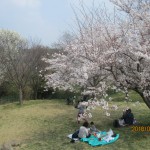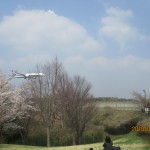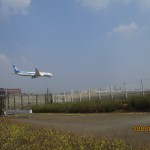大学教師には村上春樹ファンもいるらしく、英語の問題に村上春樹の文章(英語)が出題されることもあるようだ。以下は、卒業生のI氏からの情報。
村上春樹『走ることについて語るときに僕の語ること』)<Haruki Murakami, What I Talk about When I Talk about Running.の英訳が素材の入試問題。
Answer questions 1-12 that summarize the passage. Keeping the same meaning as the passage, select the BEST ANSWER for each question and mark the LETTER of your answer on the COMPUTER ANSWER CARD.
1. Paragraph 1. In 1983 the author went to Greece and ran [ ].
A. in a race starting in the city of Athens in July
B. in the summer from Athens to the town of Marathon
C. the ancient marathon course from Marathon to Athens
D. to the town of Marathon during the morning rush hour
2. Paragraph 2. He did this because [ ].
A. a travel magazine asked him to do it
B. he had never run twenty-six miles by himself
C. he was planning to write an article about it
D. the marathon originated in modern Greece
3. Paragraph 2. Although the author wasn’t very enthusiastic about taking a package tour, [ ].
A. he knew it would be easier than traveling alone
B. he wanted to visit the tourist sites in Greece
C. the idea of taking a cruise on the Aegean Sea appealed to him
D. when the tour finished he could do whatever he wanted to do
4. Paragraph 3. At first he thought he would run just part of the ancient marathon course
but in the end [ ].
A. he changed his mind and ran almost all of it
B. he decided to run the whole way
C. running half of the marathon seemed enough
D. the editors asked him to run the entire distance
5. Paragraph 3. The author had never [ ] before.
A. completed a full marathon
B. taken a tour of Greece
C. visited Athens and Marathon
D. written about a marathon
6. Paragraph 3. Since it wasn’t an actual marathon race, he [ ].
A. couldn’t care less about running it
B. didn’t mind that there wouldn’t be any crowds
C. hoped nobody would appear along the way
D. was confident he could reach the finish line
7. Paragraph 4. People who have visited Athens in July know that it’s so hot in the afternoon that people [ ].
A. can’t help going outside
B. go outside only when necessary
C. never go out in the heat
D. work quietly inside or rest in the shade
8. Paragraph 4. During the hottest part of the day, the dogs in Athens are completely still. Unless you watch them closely, it’s hard to tell [ ].
A. how long they’ve been sleeping
B. if they’re sleeping or awake
C. when they move their muscles
D. whether they’re living or not
9. Paragraph 5. When the author was making his travel plans, he imagined the most difficult part of his trip would probably be [ ].
A. adjusting to the easy-going Greek lifestyle
B. completing the twenty-six mile marathon course
C. convincing his friends that he wasn’t crazy to run in July
D. surviving the incredible heat in Athens
10. Paragraph 6. The magazine arranged for a van with a photographer to accompany the author and [ ].
A. drive him to the Olympic stadium at 5:00 a.m.
B. get water from him when he was thirsty
C. help him if he had any problems
D. provide him with water when he needed it
11. Paragraph 7. On the day, as the author was preparing to run, the photographer [ ].
A. asked him to take some pictures along the way
B. offered him some useful advice about the course
C. told him it wasn’t necessary to run the whole distance
D. took him to Marathon to photograph the finish line L
12. Paragraphs 7 and 8. When the photographer asked the author, “So you really are going to run the entire thing?” the author probably answered by saying something like, [ ].
A. “If I don’t do it, my friends will never forgive me, so I’ve got to run it.”
B. “I know it seems crazy, but why don’t you join me?”
C. “I promised the editors I’d write an article, so take some photos of me at the start. Then let’s drive to the finish line in Marathon.”
D. “Running this marathon course is a once-in-a-lifetime experience, so I’ve got to give it a try.”


